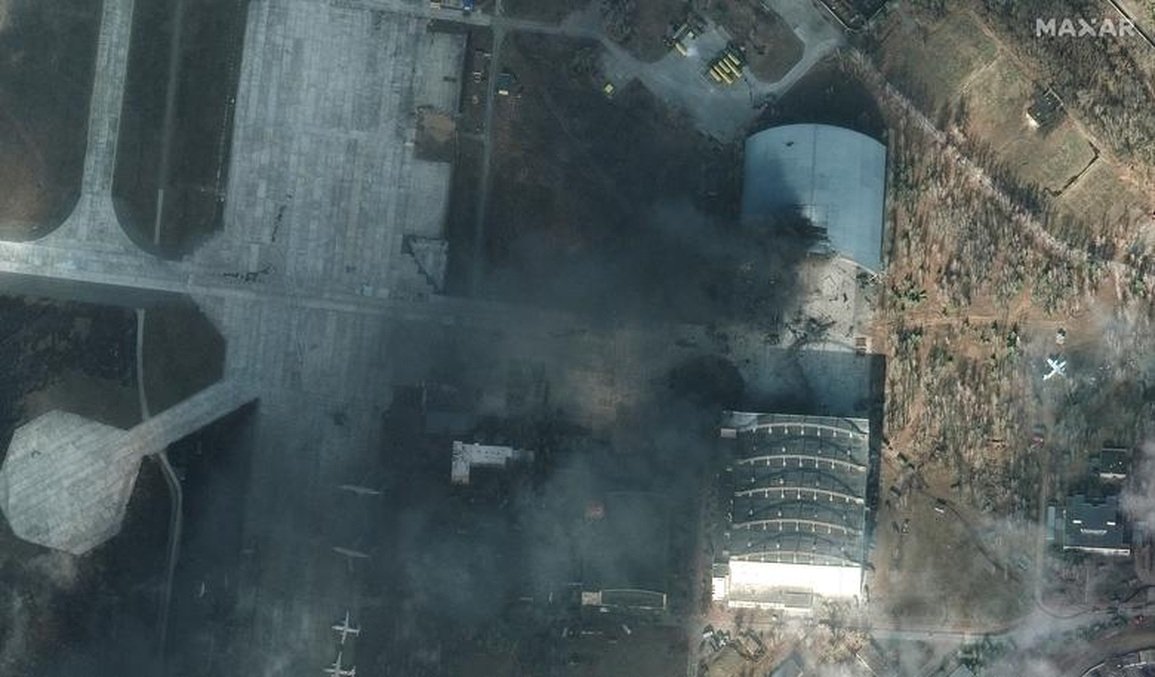(Dan Tri) – Up to now, no country in the Middle East, including Israel, has publicly supported the United States in its confrontation with Russia, despite Washington’s pressure on the Ukraine issue.
An area damaged by shelling at the airport in Hostomel, Ukraine (Photo: Reuters).
According to Asia Times, the world community is worried about escalating tensions between the US and its NATO allies on one side and Russia on the other side surrounding the Ukraine issue.
After Russia launched a special military campaign in Ukraine, the US and Western allies imposed strong sanctions against Moscow.
However, so far, Muslim countries have not voiced their support for Washington in its confrontation with Russia, or even publicly criticized Russia’s sending troops into Ukraine, although they would be relevant parties in a conflict.
Saudi Arabia recently rejected President Joe Biden’s administration’s request not to increase oil production to lower oil prices, which have skyrocketed due to the Ukraine crisis.
Saudi Arabia’s rivals Iran and Syria have openly supported Russia.
Qatar also called on `all sides to exercise restraint` and not blame Russia.
Meanwhile, Egypt’s main concern is that the conflict in Ukraine could disrupt Russian and Ukrainian wheat supplies through the Black Sea and Turkish Straits.
Israel’s predicament
According to Asia Times, it is Israel’s reaction that attracts the most attention.
Israel has blocked the US from transferring to Ukraine the Dome (Iron Dome) missile defense system, a weapon that could change the `game` in the current conflict, on the grounds that the country does not want to act against it.
Then, President Biden’s administration sought support from Israel to co-sponsor a Security Council resolution related to Ukraine.
Later, during a conversation at the Russian Foreign Ministry in Moscow, the Israeli Ambassador was asked by Russia whether his country was aware of what was happening in Ukraine.
The Israeli Ambassador’s reaction to this question was not disclosed, but an unexpected development occurred when Israeli Prime Minister Naftali Bennett called Russian President Vladimir Putin on February 27 to propose mediation on the issue.
Russian media reported briefly: `It was Israeli Prime Minister Naftali Bennett’s turn to offer to mediate to prevent military actions.`
According to the source, President Putin briefed his counterpart Bennett about the special military operation to protect Donbass and explained that Moscow `is ready to negotiate with Kiev representatives, who have shown
Israel is in a difficult situation.
On the other hand, Israel has a very special relationship with Russia, with the historical fact that the country suffered a lot under Nazi Germany.
According to experts, the above moves reflect that many US allies sometimes prioritize other threats than Washington, including concerns about Iran.
In addition, there is also an opinion that because the US is less committed to protecting its Middle Eastern allies, countries in this region fear that opposing Russia will be much riskier than any benefits from
